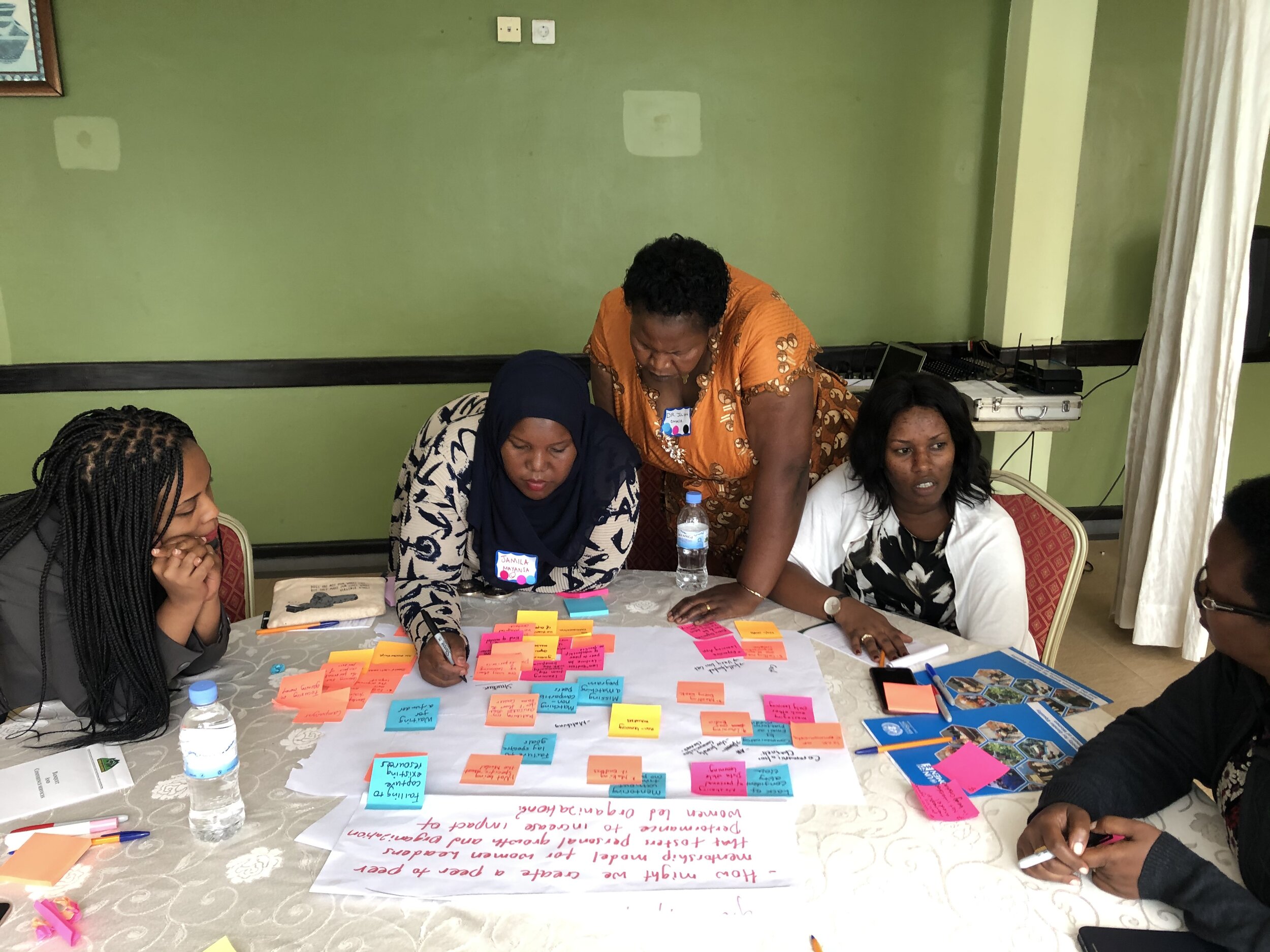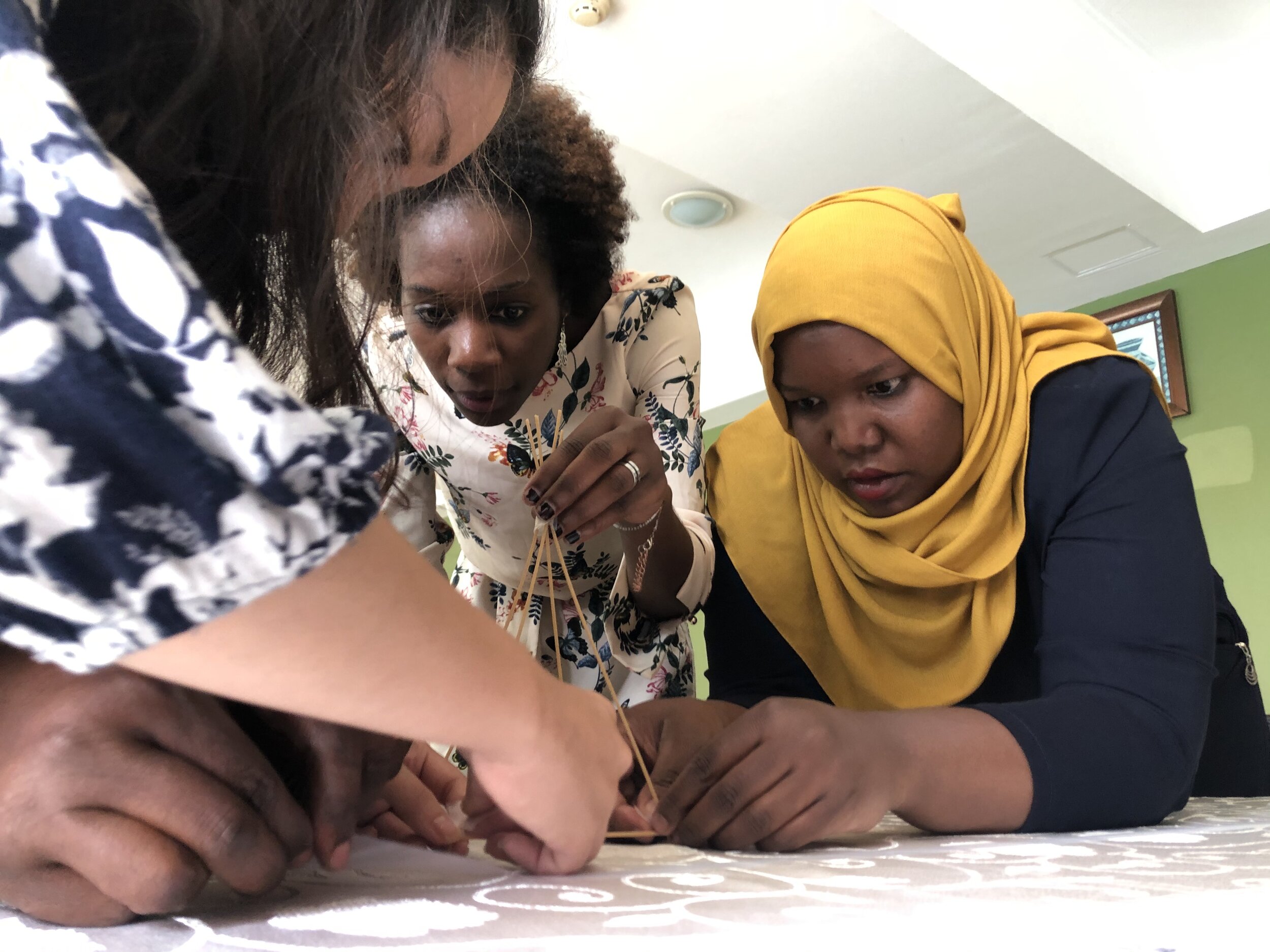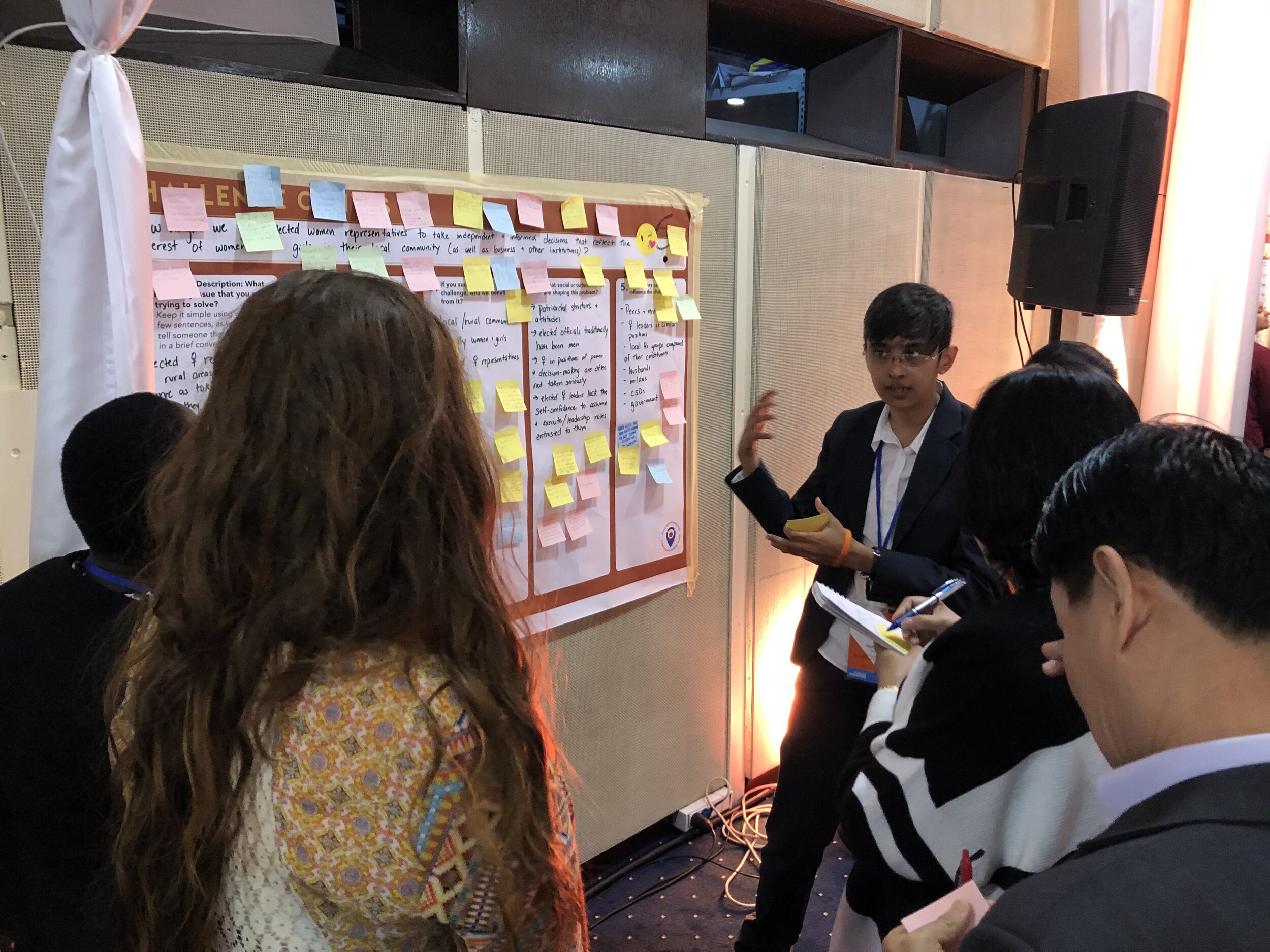Inclusion enables innovation
I believe in the transformative power of design at every level and the enormous creative and innovative potential that lies in inclusion. Whether large or small-scale, from nudging a public service to creating policy, my practice is about carefully considering the design of participatory processes. My goal is to foster inclusion and an understanding of the impact that we are seeking to create.
Case Study: Using design as tool to facilitate participatory innovation
Since the middle of the 1990s, participation has become a near-ubiquitous theme in the public sector. More recently practitioners have turned to design as a tool to facilitate participatory processes recognizing the potential in design to open up formerly and formally closed processes and recognize the enormous creative and innovative potential that lies in inclusion.
Beyond consultative approaches that imply a two-way communication, design processes, given their inherent participatory character, provide stakeholders of all kinds with the opportunity to contribute at all stages of project management, from problem definition to decision making. Making participation an inherent principle that holds the potential to demystify innovation from an act of exceptional expertise to a dynamic capability inherent within these partnerships.
In my work participatory innovation processes can take many forms and shapes, and demand an on-going power-conscious discourse. Critical factors need to be carefully crafted into these new ways of working to remove barriers of participation.
These include time, training, and resources, paired with cultural awareness and an understanding of local social, economic and political situations.



Rethink.Experiment– Applying design to gender equality programming
Working with the UN Fund for Gender Equality, we jointly launched Rethink.Experiment a design-led initiative aimed at exploring the potential for design to serve as a tool for innovation in women’s rights programming by involving partners and beneficiaries in the construction and implementation of programs. In doing so, the project team saw an opportunity “to do international development differently” with the objective of creating positive and more lasting impact while at the same time, putting into practice much of what the FGE had been advocating for:
· placing beneficiaries at the heart of the work
· flexible and adaptive processes
· addressing root causes using systems thinking
· co-creative approaches that allow for inclusive and participatory development
Furthermore, the project team also meant to encourage women civil society organizations to explore, generate and test design as a tool for their own social innovation in a safe-to-fail environment.
We invited nine grantee partners based and working in nine different countries to join us in this initiative asking them to identify to a specific challenge that was preventing them from achieving a desired result in their projects spanning from: “how might rural women from disadvantaged communities transition from small-scale producers to profitable entrepreneurs” to “how can we find creative solutions to keep women’s rights in the political agenda in a conflict setting”.
Following six months of research ranging from diary studies and observations to interviews and government data analysis and several iterations of the initial problem statement we all gathered for a week-long ideation and prototyping workshop in Istanbul.
Back in their home countries, our grantee partners launched their prototypes, one of them being the Centro de Documentación y Estudios (CDE) in Paraguay launching a weekly radio program made by and for domestic workers to help them access information in a familiar and safe way – and in their own language (Guarani) – and connect with their peers in a playful and accessible form of activism.
Another innovation was brought to life by our grantee partner in the Philippines: Atikha an organization working with migrant domestic workers in Singapore and Hong Kong helping them understand their rights, improve their savings habits, and encourage successful reintegration back to the Philippines when they decide to return, decided to prototype the “Pinoy WISE iTV”, a 30-minute weekly web-based show centered on savings, entrepreneurship, family issues, legal rights, etc. to their network.


